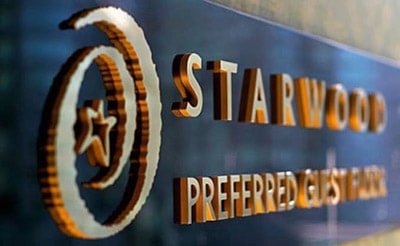
Starwood’s brands are well established in China, including at the Sheraton Taihu in Wu Xiaohui’s native Zhejiang province
China’s Anbang Insurance Group is once again the lead bidder for Starwood Hotels & Resorts Worldwide, after the US hotel chain said today that it had received a $14 billion offer from the mainland group.
Anbang is now offering $82.75 per share for the owner of hotel brands including Westin, Sheraton and the upscale W chain, according to an account in the Wall Street Journal. The Chinese company’s latest offer comes less than a week after Starwood’s board had recommended that the company accept a sweetened offer of $13.6 billion in cash and stock from competitor Marriott International.
Many commentators had counted Anbang out of the bidding last week after mainland news reports indicated that Chinese regulators might block this latest in a burst of acquisitions by the mainland insurer.
Marriott-Anbang Bidding Contest Continues

After a few rounds of bidding, Starwood now says it prefers Anbang’s $14B offer
Anbang is once again joined in the all-cash, non-binding proposal by partners JC Flowers and Co of New York, and Chinese private equity firm Primavera Capital. The Journal story indicated that Starwood’s board believes today’s Anbang offer is a “superior proposal” to Marriott’s March 21st deal, which the two hotel groups reached a preliminary agreement on last week.
The two sides are said to still be in discussions and Starwood’s board has not yet changed its recommendation to shareholders.
Marriott and Anbang have taken turns flinging higher offers at Starwood since March 14th, when Anbang made its first, unsolicited $12.8 billion offer to buy the hotelier. Marriott had agreed in November last year to purchase Starwood in a mostly stock deal valued at $12.18 billion ($72.08 per share). However, the value of that offer had slid to around $11 billion by the time that Anbang made its first bid, after Marriott shares declined 6.5 percent in the interval.
Starwood was then able to nudge Anbang’s bid upwards to $13.2 billion, before its board agreed to be acquired by the Chinese firm on March 19th. Two days later, however, Starwood agreed to Marriott’s $13.6 cash and stock offer, which stood the test of a week’s time before giving way to Anbang’s latest offer today.
Should Starwood’s breakup with Marriott stick this time, the jilted hotel chain could be entitled to a $450 million breakup fee, as well as $18 million in deal related costs.
Anbang Blows Past Regulatory Hurdles With Latest Bid

Anbang chairman Wu Xiaohui can smile about Starwood again this week
This latest move by Anbang pushes the highly connected mainland finance firm past apparent objections by its government watchdog, the China Insurance Regulatory Commission (CIRC).
Immediately following the news of Starwood accepting Marriott’s March 21st offer, a story appeared in the respected China business news portal, Caixin, which cited sources within the government indicating that the CIRC would block Anbang’s deal for Starwood on the grounds that it would violate the country’s cap on overseas assets held by domestic insurers.
Despite humble beginnings leasing cars in China’s Zhejiang province, Anbang’s chairman, Wu Xiaohui has worked his way up through China’s intertwined business and political circles to where he is now married to a daughter of former premier leader Deng Xiaoping, and is said to have family members of many top Beijing personalities as investors in his insurance firm.
CIRC rules issued in 2012 cap overseas holdings by the country’s insurers at 15 percent of total assets. Anbang, which also bought the Waldorf Astoria in late 2014 for $1.95 billion, and earlier this month bought Strategic Hotels & Resorts from Blackstone for $6.5 billion, declared in February that it had RMB 700 billion in total assets.
Should Anbang’s latest offer be accepted, and barring an inordinately large contribution by JC Flowers and Primavera, Anbang would be committing to overseas holdings of at least RMB162.4 billion, or more than 23 percent the total assets that it declared in February.
Observers have commented in the past that Anbang has a tendency to finance its investments through cash injections from shareholders, rather than from premium revenue, and that despite its rapid pace of acquisitions, seems to have a knack for choosing high-profile, but low-yielding investments.
Leave a Reply